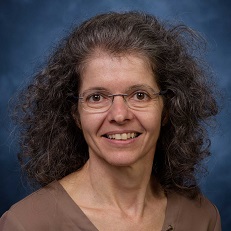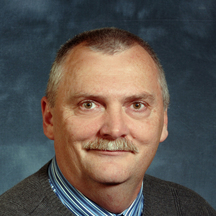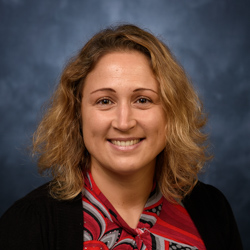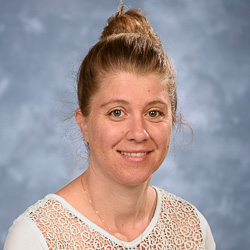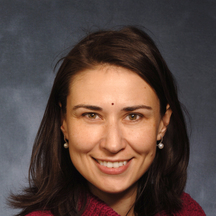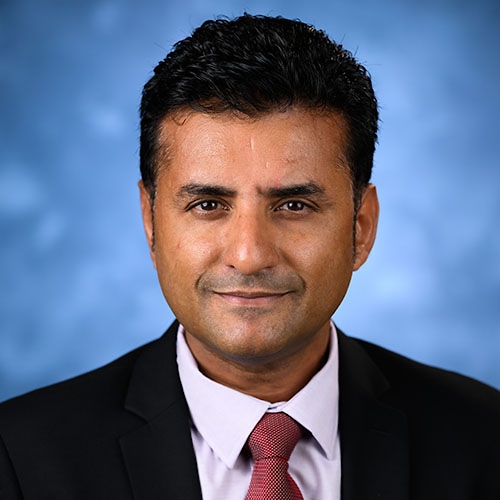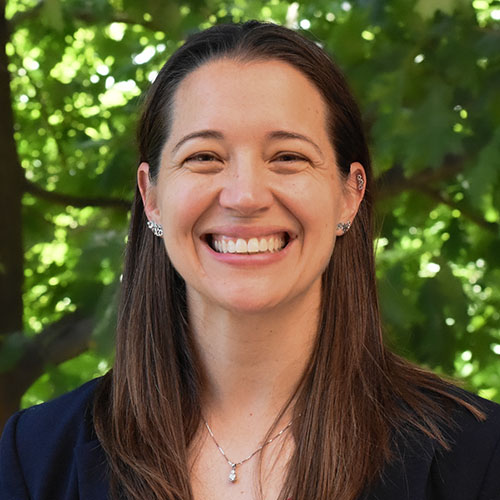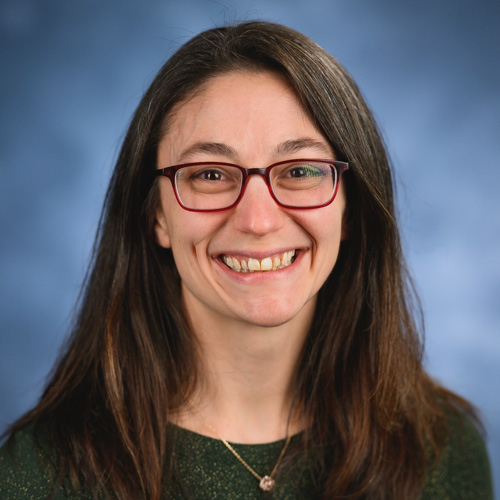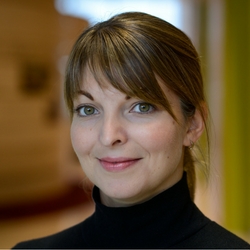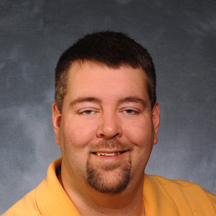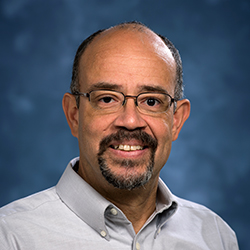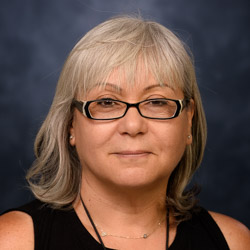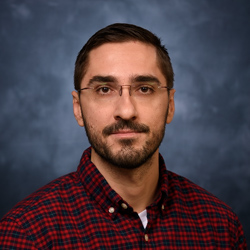Focus Area – Food Animal Production Medicine
This focus area is designed to train interested students in all the basic, many of the intermediate, and some of the advanced skills needed to be successful and influential in their chosen species and facet of modern food animal production. The scope of training and hence careers available are very broad and ranges from private practice for family farms / enterprises, incorporated farm operations, to integrated corporate food production systems on into government or corporate jobs in allied industry companies. Meaningful and vital careers can be pursued in food safety (any point from farm to table), prudent use of antibiotics, antibiotic-free food animal production, protection of the national food supply via inspection of and collaboration with foreign producers of food products or through Foreign Animal Disease surveillance, prevention, and crisis planning at state or national levels.
Excellent training in skills are necessary to pursue the modern veterinarian’s role in helping farmers and producers. Veterinary training skills can be attained in: 1) herd disease prevention, diagnosis, or management which is fully dependent upon 2) understanding and meeting the needs of the animal which also is essential for helping, and 3) maximize the reproductive, growth, or milk / egg production performance of food animals. All these goals must be balanced with the national and global needs to minimize the feeds, financial, and material resources used, the waste produced, and hence impact upon the environment as a whole.
It is understood that the field of food animal medicine is far too broad and complex to allow anyone to acquire an intermediate level of proficiency across all the main food animal species (ruminants, swine, and poultry). Therefore, the objective of this focus area is to provide adequate training for food animal oriented veterinary students to gain the basic level of knowledge and skills expected of food animal veterinarians in two species, an intermediate level in their species of choice. Many of the potential career opportunities possible based upon training in Food Animal Veterinary Medicine may or will require additional post-graduate training or degrees to become fully trained for the particular job or future advancements. Additional training programs include research-based MS or PhD degrees (microbiology, immunology, physiology, nutrition, behavior, etc), clinical residencies, board certification, MBA, JD, etc.
Each student’s 4 year training program will be tailored to their particular species and skills of interest. With the help of their chosen food animal faculty advisor, the student will develop a plan of study in order to gain a functional knowledge of and essential skills in veterinary population medicine and food animal production. Planning would include choosing Selective courses, agricultural summer-work opportunities, senior block scheduling, veterinary practice externships, and specialty career summer-work experiences or 2 week senior blocks pursuing non-practice training in pathology, food safety, state and federal disease surveillance and management, international government programs, or any facet of veterinary research that intrigues them. Given the international nature of food production and procurement, externships in other states and even outside the US can be components of a Food Animal Focus Area plan of study.
Students are expected to gain experience in at least two different food animal species (i.e., ruminants and swine; swine and poultry; etc.). At the end of their training, Food Animal Focus Area students will have, at a minimum, acquired the knowledge and skills required to perform at an intermediate level in the following fields: herd/flock health management, regional disease control concepts, and the various production methods and grouping / housing structures used by various sized food animal production enterprises. Food Animal Scholars are automatically enrolled in the Food Animal Focus Area.
Focus Area Leader
Focus Area Advisors
Support Faculty (non-core Mentors)
Steps for planning your career training within the Food Animal Focus Area
- Identify an advisor from the listed Food Animal faculty listed above with whom you relate well with and who has interests / experience / external professional contacts in your area of interest.
- Plan with your advisor which CVM selectives, summer work opportunities, meetings, 4th year Food Animal Blocks, trips to specific laboratories, companies, government agencies, etc. that best prepare you for your chosen career.
- Make contacts/arrangements early for your summer work-experiences and 4th year externships.
- Plan which non-Food Animal 4th year CVM rotations would be of best value for your career training.
Year 1-3 Requirements
- No required electives or selectives
- Recommended Summer Work Experiences planned with your advisor
- Recommended Selectives
- VMB 991 Avian anatomy & physiology
- VMB 992 Food animal residue avoidance
- VMC 991 Professional meeting
- VMP 991 Small Ruminant Experience
- VMP 991 Diagnosis of Poultry Disease
- VMP 991 Swine Health Management
- VMP 992 Large animal practice experience
- VMP 992 International pork production
- Recommended 3rd Year Core Electives
- VMP 906 Bovine Reproduction
- VMP 908 Advanced Ruminant Medicine and Surgery
Year 4 Requirements
To see course descriptions, visit the Clinical Year Course Catalog page.
REQUIRED Rotations
- VMB 976: Radiology
- VMB 977: Anesthesia
- VMP 977: Necropsy
- VMP 978: Clinical Pathology & Lab Med (* if not taken as 3rd-year Selective)
- VMP990F Extramural Experiences – Food Animal/Mixed [4 required]
CHOOSE ONE Primary Care Rotation
- VMC 939: Small Animal Primary Care
- VMC 949: Equine Primary Care [2-block course] (Instructor Approval)
- VMP 970: Ruminant Health Management I
CHOOSE ONE Surgery Rotation
- VMC 975: Equine Surgery
- VMC 968: Equine Orthopedics
- VMC 973G: Small Animal Surgery
- VMC 973O: Small Animal Orthopedics OR VMC 994O: Extramural Experiences – Small Animal Orthopedics
CHOOSE ONE Emergency Rotation
- VMC 960: Small Animal Emergency
- VMC 966: Equine Emergency
CHOOSE ONE Food Animal Rotation
- VMP 971: Food Animal Diagnostics
- VMP 976: Food Animal Pharmacology
CHOOSE THREE Food Animal Rotations
- VMP 970: Ruminant Health Management I
- VMP 972: Ruminant Health Management II (Instructor Approval)
- VMP 996: Ruminant Medicine & Surgery
- VMP 983: Poultry Health Management I (Instructor Approval)
- VMP 984: Swine Medicine I
- VMP 985: Swine Medicine II (Instructor Approval)
- VMP 979: Epidemiology
Opportunities
RUMINANT
Summer Dairy Institute – This is an intensive 8-week course on dairy production medicine offered at Cornell University. The course includes instruction on topics such as reproduction, nutrition, dairy facilities, dairy record systems, biosecurity, financial decision making, and milk quality. This course is limited to senior students or recent graduates. More information can be found at the following website: Summer Dairy Institute
University of California-Davis (Tulare Center) – Dairy externships are frequently offered through the UC-Davis Teaching and Research Center. An overview of the Center as well as contact information can be found at the following website: http://www.vmtrc.ucdavis.edu/
Great Plains Veterinary Educational Center (GPVEC) – Externships and courses are frequently offered by the GPVEC in Clay Center, Nebraska. Programs in calving management, lambing, feedlot management, and bull breeding soundness are offered each year. Although students from Colorado State University, Kansas State University and Iowa State University are often given priority for these courses, NCSU students have been successful in participating in several of these programs in the past. More information can be found at the following website: http://gpvec.unl.edu/
Kansas State University offers 2-week externships (blocks) for seniors on both “Advanced Cow-Calf Production Management” and “Advanced Feedlot Production Management.” These blocks are open to students from other Universities. Dr. Brad White (bwhite@vet.ksu.edu) is the coordinator of the Cow-Calf rotation and Dr. Dan Thomson (dthomson@vet.k-state.edu) coordinates the feedlot production course. Applications for either rotation can be obtained through Ms. Nelwyn Cook at ncook@vet.k-state.edu
Caine Veterinary Teaching Center (Caldwell, Idaho) – The Caine Veterinary Center in Idaho offers several clinical rotations for clinical veterinary students. Rotations are offered in general food animal medicine as well as specific rotations focused on dairy, beef (calving), feedlot medicine, bovine reproduction, lambing, and small ruminants. These rotations are open to students from other Universities.
University of Wisconsin offers several dairy production medicine rotations specifically focused on topics such as mastitis investigation, fresh cow problems, advanced dairy records and nutrition, and advanced lameness. More information can be found at the following website: http://www.vetmed.wisc.edu/dms/fapm/clin_rotat.htm
The University of Minnesota offers externships in dairy medicine at the Dairy Education Center located at New Sweden Dairy (http://www.cvm.umn.edu/dairyveted/). Dr. John Fetrow (fetro001@umn.edu) can be contacted for further information.
Michigan State University Training Center for Dairy Professionals – This is a 3,000 cow dairy farm about 20 minutes from the veterinary school in Lansing, MI. Multiple training opportunites are available. Dr. Lou Neuder can be contacted for more information. http://cvm.msu.edu/departments/large-animal-clinical-sciences/training-center-for-dairy-professionals
SWINE
S-PIKE (Swine Production Immersive Knowledge Experience) – This is a 10 week summer program led by Iowa State University. It is geared towards students that will be entering their first, second or third years of veterinary school and have an interest in swine medicine. No previous beef experience is needed. The program begins in May and ends in July and will include rotation through many modern swine production facilities.
Iowa State University offers swine production medicine and diagnostic rotations that are open to students from other veterinary colleges that have an interest in swine health. Please contact Dr. Locke Karriker (karriker@iastate.edu) or Dr. Butch Baker (rbbaker@iastate.edu) for further information.
POULTRY
University of Georgia offers poultry medicine rotations that are open to students from other veterinary colleges that have an interest in poultry health. More information can be found at the following website:https://vet.uga.edu/education/dvm-program/externships/
Purdue University Animal Disease Diagnostic Laboratory offers poultry medicine and diagnostic experience for students from other veterinary colleges that have an interest in poultry health. Please contact Dr. Patricia Wakenell for more information (765)-496-3347. pwakenel@purdue.edu.
Other Useful Information
- Bovine practitioners: http://www.aabp.org/
- Swine practitioners: http://www.aasp.org/
- Small ruminant practitioners: http://www.aasrp.org/
- Poultry veterinarians: http://www.acpv.info/
Recent/Current Number of Food Animal Focused Students
- Class 2013: 11
- Class 2014: 10
- Class 2015: 10
- Class 2016: 12
- Class 2017: 18
- Class 2018: 12
- Class 2019: 12
- Class 2020: 9
- Class 2021: 12
- Class 2022: 13
- Class 2023: 10
- Class 2024: 0 declared to date
